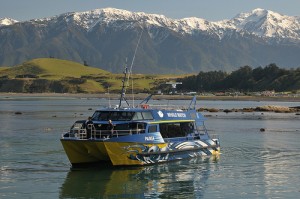
Four years ago I watched a Maasai warrior stand up in front of a roomful of tourism executives and academics, and say, very politely, “All we want is a voice”. This was in response to endless Powerpoints on sustainable tourism, ethical policies and community empowerment strategies. The Elder was making his point that we can have all the strategies we want in the world, but it’s only through talking to the local people in tourism destinations, that we really achieve a truly responsible form of tourism. There was silence in the room. This wasn’t in anyone’s ‘script’, and noone was really able to give an adequate response or offer of support.
Which is why I was overjoyed to see so many indigenous communities, or organisations which are whole heartedly committed to sustaining them, being recognised at the Virgin Holidays Responsible Tourism Awards 2009, which took place at this week’s World Travel Market in London.
Such as Village Ways in India (villageways.com), winner of Best Tour Operator for Cultural Engagement. This community-owned company has brought previously vulnerable and disadvantaged individuals from the Dalit community back into their society by creating positions of porters and guides, who now lead guests around sites of cultural interest.
In the Small Hotel category, the winner was Rivertime Resort and Ecolodge in Laos (rivertimelaos.com), a role model for many small accommodation providers, because it has signed contracts with its three local villages, setting out the responsibilities of the company to maximise benefits for the local community. Another example of inspirational community involvement was Adventure Alternative (adventurealternative.com), an adventure holiday company which provides long-term employment to local communities in Nepal, Kenya and Tanzania. According to the judges, its founder, Gavin Bate, ‘works round the clock to keep local individuals at the heart of what they do’ and, in so doing, won Best Personal Contribution to Responsible Tourism
In Mongolia, Selena Travel (selenatravel.com) has worked with the nomadic community in Tuv to found a nomadic cultural festival, which opened in 2004. The Festival now receives hundreds of visitors every year, and is recognised by the Mongolian Ministry of Nature, Environment and Tourism. Consequently, it was awarded the Conservation of Cultural Heritage award.
However, it was the Maori communities which showed everyone how it can be done. Winner of Best in a Marine Environment as well as the Overall Winner, Whale Watch Kaikoura (whalewatch.co.nz) is a 100% Maori owned company, in the small New Zealand town of Kaikoura. Originally set up by four Maori families in 1987, it now takes one million visitors whale watching every year. Its Chairman, Wally Stone, told me “Our own legends of the whales, which represent the migration of our ancestors, inspired us. This is my blood line, our story, and we are now able to pass it on from generation to generation”. One of the most inspiring aspects of this community-led organisation, is that it has spread into mainstream tourism. Mr. Stone also went on to be Chairman of New Zealand Tourism and is proud that “we evolved together”.
I couldn’t help thinking of an Irish Tourism Board executive who recently balked at the very notion of community-based tourism at another conference I attended, saying “I just don’t want to know about it. Our job here is to make money, and community tourism just doesn’t do that”. The proof that nothing could be further from the truth was written all over this prestigious awards ceremony. Many local community tourism projects are fighting strong. Thankfully, they are no longer having to shout from the wings, but are up there with all the others now, centre stage. The difference compared to four years ago, however, is that people are really starting to listen to them.
For news on all other Virgin Holidays Responsible Tourism Awards 2009 see responsibletourismawards.com.
An edited version of this article was published in The Irish Times, 14 November 2009
